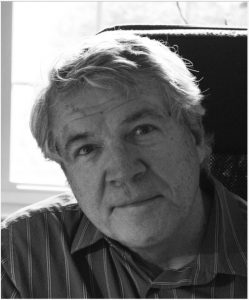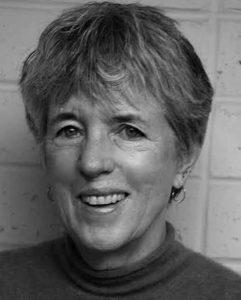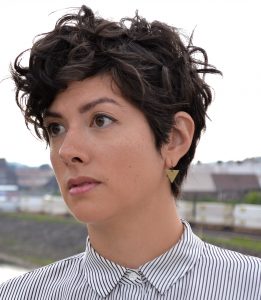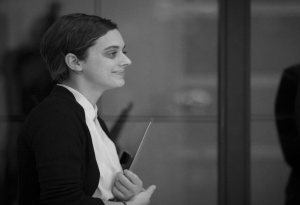Letter From the [Poetry] Editor
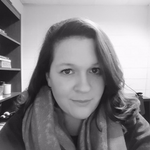
This year’s Sandy Crimmins National Prize poems explore deep grief and remind us of the system we operate within—a system that will kill difference or defiance. Danger and comfort are braided throughout the poems in this issue; they twist around the poems creating space to both grieve and grow. Some poems tear back the bandage painfully, but do so in order to apply balm. Often in one poem, we find a voice crying out in rage, then finding clarity and direction. These poems feel necessary: we frequently look to poetry for comfort, but that comfort can be untenable in an atmosphere so saturated with violence as ours is.
This year’s contest was judged by M. Nzadi Keita, author of the poetry collection Brief Evidence of Heaven which elegantly considers the life of Anna Murray Douglass, first wife of Frederick Douglass. The winning poem “Elegy for Breath” by Carlos Andrés Gómez is, according to Keita, “unrelenting” in its presentation of the trauma. She continues:
This poem haunts our very own breathing with a question, both mournful and matter-of-fact: how much, in the U.S.A., does breathing inside a human black body redefine, from birth to death? Focused on the long tradition of American citizens murdered by police, each stanza in this poetic montage answers in a different way.
Many of the poems selected as finalists reckon with the realities of racial, sexual, and religious violence. Of her selection of poems, judge M. Nzadi Keita says, “The stunning compassion, honesty, and force of witness in the [selected poems] reinforces and affirms.….how poets solidify our human bonds.” We need one another. These poets deftly, through a variety of styles and tactics, present humanity as broken, but—staggeringly, stubbornly—capable of healing.
Philadelphia Stories thanks Joe Sullivan for his robust and continued support of this contest. We also thank Nicole Mancuso, contest coordinator and assistant poetry editor, and Yalonda Rice, managing editor, who both exert gentle-but-considerable authority and keep us moving forward. Mostly, we thank the poets who generously share their work with us and we encourage local writers to continue to do so.
We will celebrate our winners at the LitLife Poetry Festival presented by Philadelphia Stories along with the Montgomery County Poet Laureate Program at Rosemont College, April 6. Attendees will enjoy master classes with Crimmins judge M. Nzadi Keita and poet Dilruba Ahmed, judge of this year’s Montgomery County Poet Laureate competition. A series of panels will discuss and reflect on a variety of ideas related to the place of poetry in our lives and the world. We will celebrate the winning poets of the Crimmins contest and the new poet laureate of Montgomery County in an afternoon reception which will be free and open to the public. For more information please visit philadelphiastories.org/litlife-poetry-festival.
WINNER OF THE 2019 SANDY CRIMMINS NATIONAL PRIZE IN POETRY
“Elegy for Breath,” Carlos Andrés Gómez (Forest Hills, NY)
RUNNERS UP
“All Objects,” Brittanie Sterner (Philadelphia, PA)
“Nine-Year-Old Suicide in Reverse,”Chad Frame (Lansdale, PA)
“How to Read Whitewater in the Mid-Atlantic Region,” Kimberly Andrews (Chestertown, MD)
HONORABLE MENTIONS
“Post Rehab,” Claire Rubin (Oakland, CA)
“Phantom Limb,” Fran Baird (Flourtown, PA)
“Bruce,” Chad Frame (Lansdale, PA)
EDITORS’ CHOICES
“Imagine Sisyphus Happy,” R.G. Evans (Elmer, NJ)
“Tapestry Room,” Rebecca Levi (New York, NY)
“Neighborhood Report,” Julia Lattimer (Boston, MA)
FINALISTS
“Chugach,” David Hopes
“The Silence of Emma Gonzáles Teaches Us about Language,” Matt Hohner
“I wonder why they never taught us about Sylvia Mendez,” Mercedes Lucero
“Sestina as Kabbalah/Kabbalah as Sestina,” Leonard Kress
“Oceanic Moments Outside a Discount Superstore,” Hayden Saunier
“If none are strangers,” Brittanie Sterner
“H.O. Andrews & Sons,” Kimberly Andrews
“Poem about Death Ending with Reincarnation,” Carlos Andrés Gómez
“Edge of the Dance Floor,” Carlos Andrés Gómez

